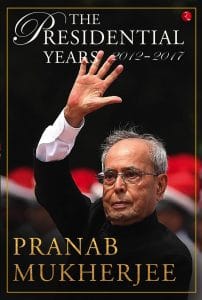People sometimes say that judges are an insulated lot and that they ought to be more sociable. In our democratic concept, I feel that judges, especially of the higher judiciary, do not generally interact with other stakeholders. A certain distance has to be maintained, given the judiciary’s role in adjudicating various actions of the executive. However, there should be more frequent interactions between the executive and the judiciary. If the CJI were to meet the PM more regularly—and similarly the Chief Justice of High Courts were to interact with the respective CMs more often—a number of vexatious issues could be resolved, and the balance that is needed to be maintained between them can be achieved.
The loss of balance at times is a disturbing phenomenon. But this was not always the case. Prior to the 1991–93 verdicts of the apex court, there was a sense of balance between the executive and the judiciary and also between Parliament and the judiciary. But with the Supreme Court deciding that it would select and appoint judges to the higher judiciary, areas of confrontation emerged, causing disruption in the fine balance that has been provided for in the Constitution.
As president, I made attempts to interact with the judges. I would invite them over for tea and photo sessions. Unfortunately, there were not enough occasions to meet them otherwise. I would see them on formal occasions, including the swearing-in ceremony of the CJI.These welcome and farewell events were, of course, rare. I was sworn in by CJI Kapadia. Then I had the opportunity to host dinner for various others—Altamas Kabir, P. Sathasivam, R.M. Lodha, H.L. Dattu, T.S. Thakur and J.S. Khehar, among others.
Also read: Many in Congress will agree with Pranab Mukherjee’s view on leadership but won’t speak up
A lot can be said about delays in the justice delivery system, but the courts too work under many constraints. There are not enough courtrooms and judges.The judicial infrastructure needs major expansion, which in turn requires funds. The expenditure on the judiciary comes under non-plan expenditure, and there have not been enough funds to spend in revamping the judicial infrastructure. The ratio of judges to the population is also worryingly low. According to the Ministry of Law and Justice, India has 20 judges per 10 lakh people; it faced a combined shortage of over 6,000 judges, including over 5,000 in the lower courts. As CJI Thakur had in 2016 told a gathering in the PM’s presence, the ‘entire burden’ (of vacancies and the growing pending cases) could not be shifted onto the judiciary.
The crisis, however, is a complicated one and cannot be resolved through instant or populist methods. Besides, at times, neither the government nor the judiciary can do much. For instance, the tendency to litigate, although a democratic right, leads to problems.There are issues that can be resolved by other means. According to various reports, the government happens to be the biggest litigator in various courts.
In the face of this onslaught, what can be done? If the judiciary decides to shorten the process of litigation with intent to settle cases faster, there will be cries of protest from various quarters, with the allegation that the justice system is being short- circuited and made unfair. But the fact remains that vacancies have to be filled quickly. Take the Allahabad High Court, which has the highest number of sanctioned strength of judges among all High Courts; it has also had a high number of vacancies, although various attempts have been made to fill those vacancies.
Also read: Pranab Mukherjee’s children in Twitter spat over his memoir, son objects to its publication
The primary responsibility of filling these vacancies now lies with the collegium, a system that the Supreme Court has adopted after rejecting the NJAC. Incidentally, there is no provision in the Constitution of India for the establishment of a collegium to select judges to the apex court and the High Courts. But now that the system is in place, the members of the collegium have to ensure that the problem of vacancies is addressed effectively.
Inordinate delays in the appointment of judges also deny opportunities to the deserving. A judge who is appointed after his junior and thus takes oath later, goes up the seniority ladder, which could adversely affect his chances of promotion, either in the High Court or the Supreme Court. It is the responsibility of both the collegium and the government to avoid such fallacies.
In the final analysis, the Supreme Court has remained substantially balanced, with only a few aberrations here and there. Our judiciary has given relief to the people when they needed it the most. Nowhere in the world would you have instances where the courts take cognizance of grievances of the common man sent through a simple postcard, and provide justice.
 This excerpt from ‘The Presidential Years 2012-2017’ by Pranab Mukherjee has been published with permission from Rupa Publications.
This excerpt from ‘The Presidential Years 2012-2017’ by Pranab Mukherjee has been published with permission from Rupa Publications.







Where distrust is the name of the game, frequent interactions between executive and judiciary will lead to undesirable speculations. The party cadres will go bezique to please half-educated, irresponsible bosses who are willing to stoop down to any levels. All the Ex-Greats merrily advise things which they never did while being in or out of power.
No. The judges should always maintain a respectable distance from the political leaders and the media . Even a casual exchane of courtesy visit by either side will be sufficient for the rumour mills to suspect the integrity and independence of the judiciary and make negative propaganda to unbearable levels.